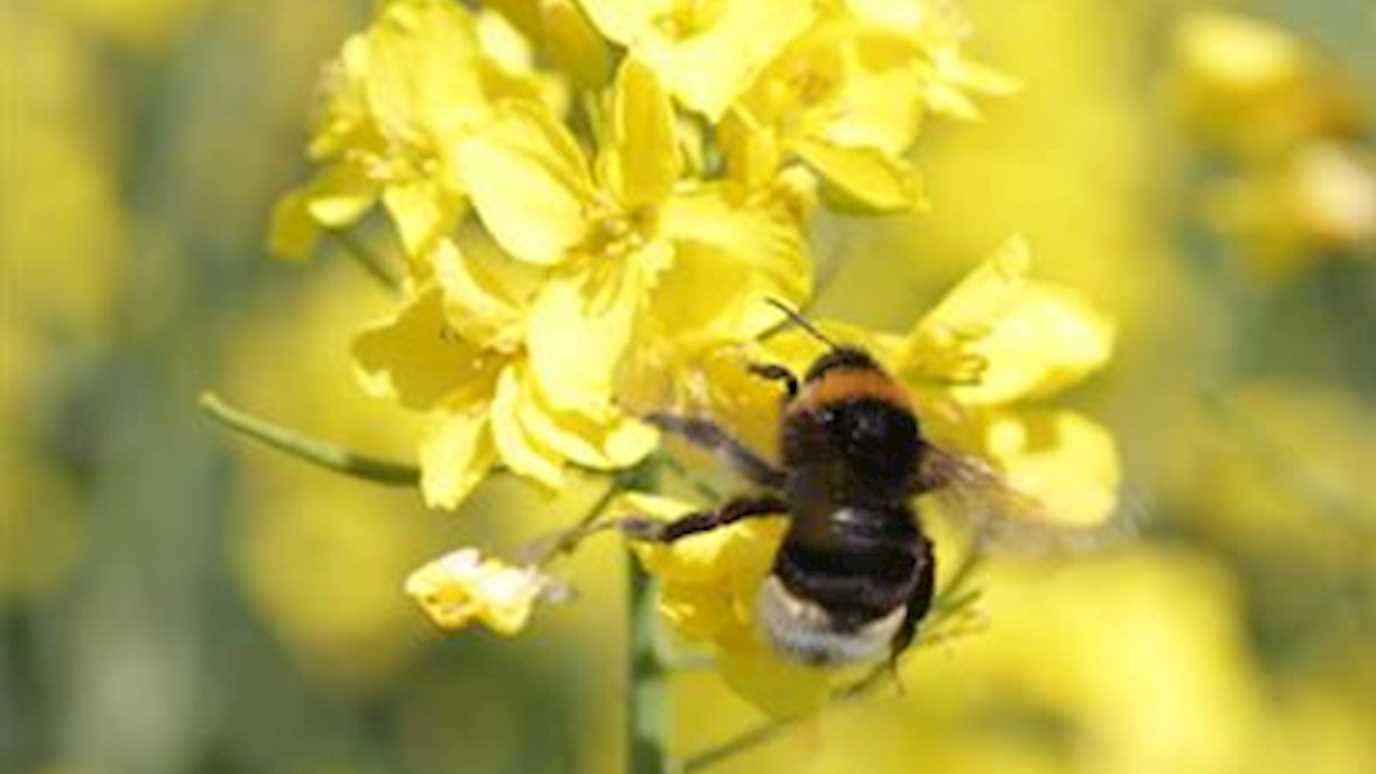Bumblebees that live in urban areas thrive more than their rural cousins, research by academics from Royal Holloway, University of London and Imperial College London, has shown.

Bumblebee
The paper, Lower bumblebee colony reproductive success in agricultural compared to urban environments is published today in the journal, Proceedings of the Royal Society B.
Lead researcher Ash Samuelson, a PhD student from the School of Biological Sciences at Royal Holloway, set out to discover why bumblebees may be more abundant in cities and towns than in agricultural landscapes; despite the fact that urban areas are usually seen as being less wildlife friendly environments.
“We wanted to understand if this was a case of bees simply moving into urban areas or whether urban bee colonies are more successful, and able to produce more offspring,” said Ash.
Bumblebees are important pollinators but are facing multiple threats, including changes in the availability of forage because of land-use change and pressure from parasites and disease.
Colonies of wild bumblebees were reared in the lab at Royal Holloway and placed into 38 gardens and farms across the south of England from inner city London to farmland in Berkshire. The bees were then monitored over a ten week period.
Ash said: “We found that bumblebee colonies placed in agricultural areas produced significantly fewer reproductive offspring than those in village or city sites. This means that these colonies would be less able to pass their genes on to the next generation. We also found that agricultural colonies were smaller and had less stored food, which may have contributed to the lower reproductive success.
“Although it seems counterintuitive that the ‘unnatural’ environment of a city is beneficial to bees, we have to remember that modern agricultural areas are also very far from the habitats in which these bees evolved. So while we were surprised by the magnitude of the effect of urbanisation on bee colony success, the fact that bees performed poorly in farmland reflects the increasingly apparent realisation that intensive agriculture has negative impacts for wildlife,” she added.
The abundance of flowers throughout most of the year in gardens and parks may help explain why the bees thrive, while the loss of wildflowers plus crops which flower for a short time in agricultural areas may mean bees have fewer resources. Also the use of pesticides in agricultural land could have a negative impact on the health of colonies.
Commenting on the findings of her study Ash said: “We are not suggesting that bee colonies should be moved into towns and cities as a way to protect the entire bee population.
“Our results suggest that bees are able to use cities as a refuge within the barren agricultural landscape, and policy-makers should focus on improving farmland for bees by supplementing floral resources and managing pesticide use.”
Details of paper: http://dx.doi.org/10.1098/rspb.2018.0807
Authors: Ash E. Samuelson, Mark J. F. Brown, and Ellouise Leadbeater, all Royal Holloway and Richard J. Gill, Imperial College,
























